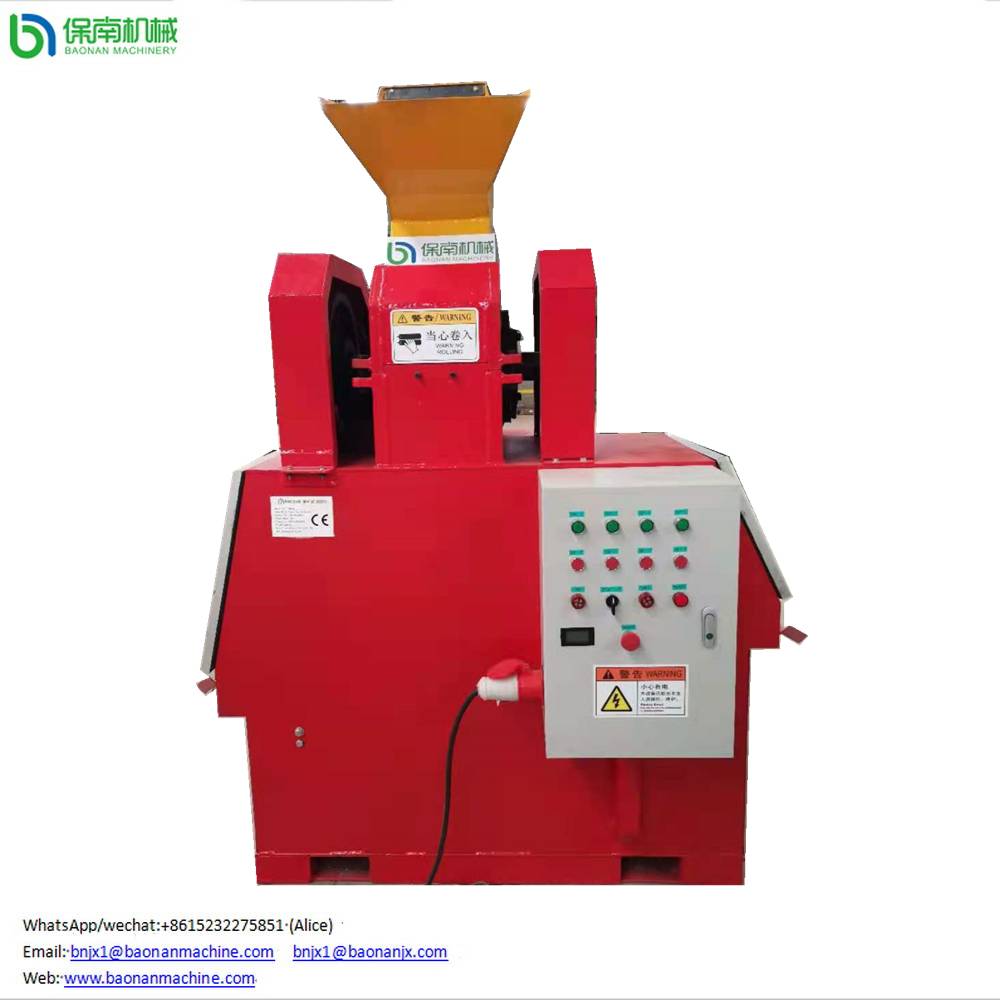

Nov . 16, 2024 11:58 Back to list
The Importance of Electronic Scrap Shredders in E-Waste Management
As our reliance on electronic devices grows, so does the inevitable problem of electronic waste, or e-waste. With millions of tons of e-waste generated each year, the need for effective recycling and disposal methods is more critical than ever. One of the essential tools in the e-waste recycling process is the electronic scrap shredder, a machine designed specifically to handle the unique challenges posed by discarded electronics.
Electronic scrap shredders are engineered to break down complex electronic devices into manageable pieces. These machines are equipped with powerful blades that can easily handle various materials, including metals, plastics, circuit boards, and other components found in computers, smartphones, and other electronics. By shredding these materials, the shredders facilitate the efficient separation of valuable metals, such as copper, gold, and aluminum, from non-recyclable parts. This not only improves the recycling rates but also conserves natural resources by reducing the need for raw material extraction.
One of the significant advantages of utilizing electronic scrap shredders lies in their ability to enhance safety and compliance with environmental regulations. E-waste often contains hazardous materials, including lead, mercury, and cadmium, which pose substantial risks to health and the environment if not handled correctly. By shredding e-waste on-site, recycling facilities can ensure that these harmful substances are managed appropriately, thereby minimizing the risk of environmental contamination. Furthermore, the shredding process results in a more uniform material size, which makes it easier to handle and process during the recycling phase.

Businesses and municipalities are increasingly recognizing the importance of investing in electronic scrap shredders as part of their sustainability initiatives. By implementing proper e-waste recycling programs and using advanced shredding technology, organizations can demonstrate their commitment to environmental stewardship while also potentially reducing operational costs. Recycling e-waste not only helps avoid landfill disposal but can also yield profitable returns from the recovery of precious metals and reusable materials.
Moreover, electronic scrap shredders can significantly improve the efficiency of the recycling process. When appliances and devices are shredded, it becomes much simpler to sort the different materials using various separation technologies, such as magnets and air classifications. This streamlining reduces processing time and enhances the overall productivity of recycling operations, making it a win-win situation for both the environment and the economy.
In conclusion, electronic scrap shredders play a vital role in the management of e-waste, facilitating the safe and efficient recycling of discarded electronics. As we continue to navigate the digital age, the importance of these shredders will only grow, making them an indispensable part of sustainable waste management strategies. Investing in electronic scrap shredders not only supports environmental initiatives but also unlocks economic opportunities through the recovery of valuable materials. By embracing these technologies, we can make significant strides toward a greener, more sustainable future.
Latest news
Troubleshooting Common Eddy Separator Problems
NewsJul.04,2025
The Role of Metal Recycling Plants in Circular Economy
NewsJul.04,2025
The Impact of Recycling Line Pickers on Waste Management Costs
NewsJul.04,2025
Safety Features Every Metal Shredder Should Have
NewsJul.04,2025
How Industrial Shredders Improve Waste Management Systems
NewsJul.04,2025
How Cable Granulators Contribute to Sustainable Recycling
NewsJul.04,2025